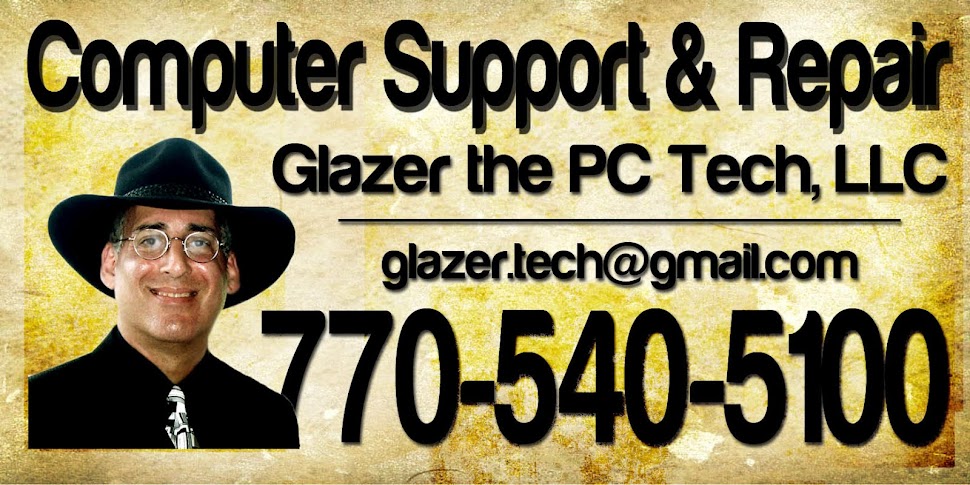
arthur@glazerthepctech.com
Search engines are not just for searching anymore. Back in the day they were a simple device for finding things on the Internet. Sure, they still do that. But today's search engines are on steroids in comparison.
Long before Google there was Archie, short for archive. It was followed by (yes) Veronica then Jughead, which in 1991 searched only for text files. You've got to keep in mind these were university eggheads blazing a new frontier. These initial search engines were used on FTP (File Transfer Protocols) as there was yet no World Wide Web (www) as we know it, which came about soon after at MIT.
Today we have Google, Alta Vista, MSN, Lycos, Ask, Yahoo, DogPile and more. Then there are hundreds of topic-specific engines (Yahoo Maps, MSN Shopping) that we won't go into in this brief history lesson.
I use Google most often and find it incredibly versatile. DogPile is the most comprehensive search engine in that it searches a half dozen or so sites simultaneously with each search. It independently looks for Web listings, images, audio, video, news items and phone listings, whatever you need.
The popular Google has entered our vocabulary mainstream recently as a verb as well as an adjective, although technically it's pronoun. You often hear, "he Googled that" and "she'll do a Google search." What Google does is mind-boggling, on both computer and cell phone. Try some of these tricks and you'll agree.
Let's begin by texting 466453 (GOOGLE) on your cell phone. You can get directions, addresses, flight status, movie times or consumer pricing on just about anything. Google will then text you back with the information you requested.
For example, text "pizza 30501" and you will get sent a list of local pizza joints; or, try "Delta Flight 153" to find out if it's on time. Cool. Be advised, texting charges do apply if not included in your cell plan. These work on the computer as well as cell phone.
Back to the computer: Google is also a calculator, currency converter, distance calculator and more. In the search box, type "8,719 + 2,174" and your answer (10,893) will show just below the box. Hit Enter and it will show on the next page.
Type "convert 63.5 Euros to $," hit Enter and again, your answer of $99.85 will show on the following page. Also try half cup in teaspoons (24) or inch to centimeters (2.54).
You could also use it as a dictionary. Type, define: (plus your word), hit Enter and it will yield the definition.
Need the time somewhere? Try time and a city and again hit Enter. Type weather and a city and you'll get a forecast. If you're on the road with your laptop, it really comes in handy.
Back to the primary function of a search engine: When you need to hone your search results, try either putting your search terms in quotes or better, use Boolean (logical value) terms to yield more specific results. Boolean searches include three basic terms: AND, OR and NOT.
For example, if you need information on over-eating and diet, try "obesity AND nutrition" for more detailed results. Navigate your way to www.internettutorials.net/boolean.html for a comprehensive discussion on how Boolean searches work.
Whichever search engine and whatever method you use, you will get results much faster today than we used to get back when I had to walk a mile to school, uphill both ways, in the snow. When I had to do research for school paper, the process was as lengthy as my walk.
My parents had a bookshelf filled with the World Book Encyclopedia. There were 400 pages per volume plus an annual for each year you had it. It was extensive and expensive. You could have gotten a used car for what the World Book cost. Also consider the time it involved accessing those massive amounts of verbiage. Add the task of copying the information one way or another. It was exhausting. The only other choice was the library.
The computer and Internet have changed all that. Now you simply use a search engine from your home PC and hit Print.
I still like to hold something tangible when I read for pleasure. My preference is toward books, magazines and newspapers over the virtual online info. But doing research is another matter. Computers and search engines save you time when you have a deadline.
Everything has its place. If I had to use the World Book to research this column, I'd still be turning pages.
Arthur Glazer is freelance writer and computer technician whose column appears biweekly and on gainesvilletimes.com.

No comments:
Post a Comment
Got a Comment - or a quick question...